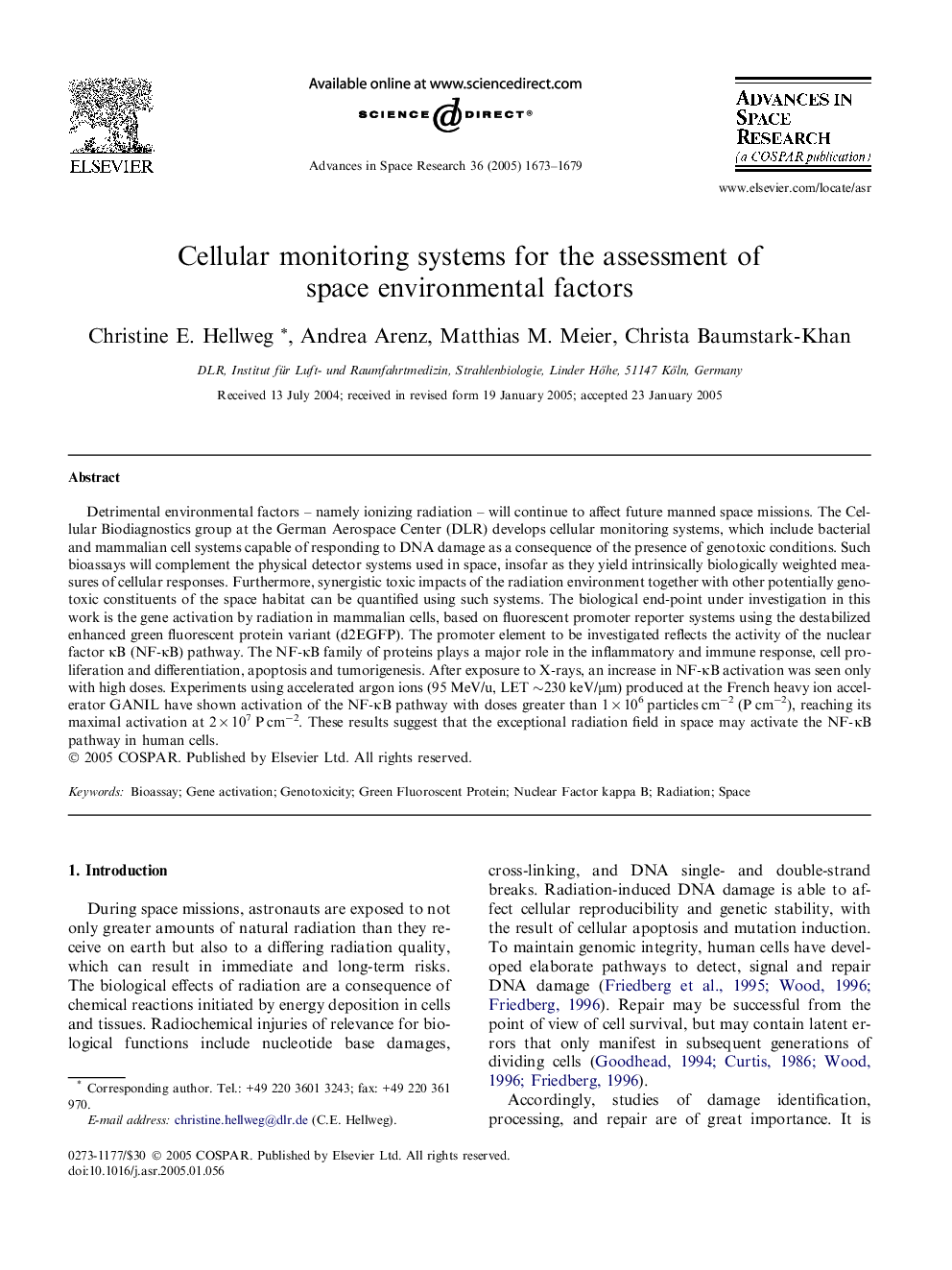| کد مقاله | کد نشریه | سال انتشار | مقاله انگلیسی | نسخه تمام متن |
|---|---|---|---|---|
| 10694908 | 1020249 | 2005 | 7 صفحه PDF | دانلود رایگان |
عنوان انگلیسی مقاله ISI
Cellular monitoring systems for the assessment of space environmental factors
دانلود مقاله + سفارش ترجمه
دانلود مقاله ISI انگلیسی
رایگان برای ایرانیان
کلمات کلیدی
موضوعات مرتبط
مهندسی و علوم پایه
علوم زمین و سیارات
علوم فضا و نجوم
پیش نمایش صفحه اول مقاله

چکیده انگلیسی
Detrimental environmental factors - namely ionizing radiation - will continue to affect future manned space missions. The Cellular Biodiagnostics group at the German Aerospace Center (DLR) develops cellular monitoring systems, which include bacterial and mammalian cell systems capable of responding to DNA damage as a consequence of the presence of genotoxic conditions. Such bioassays will complement the physical detector systems used in space, insofar as they yield intrinsically biologically weighted measures of cellular responses. Furthermore, synergistic toxic impacts of the radiation environment together with other potentially genotoxic constituents of the space habitat can be quantified using such systems. The biological end-point under investigation in this work is the gene activation by radiation in mammalian cells, based on fluorescent promoter reporter systems using the destabilized enhanced green fluorescent protein variant (d2EGFP). The promoter element to be investigated reflects the activity of the nuclear factor κB (NF-κB) pathway. The NF-κB family of proteins plays a major role in the inflammatory and immune response, cell proliferation and differentiation, apoptosis and tumorigenesis. After exposure to X-rays, an increase in NF-κB activation was seen only with high doses. Experiments using accelerated argon ions (95 MeV/u, LET â¼230 keV/μm) produced at the French heavy ion accelerator GANIL have shown activation of the NF-κB pathway with doses greater than 1 Ã 106 particles cmâ2 (P cmâ2), reaching its maximal activation at 2 Ã 107 P cmâ2. These results suggest that the exceptional radiation field in space may activate the NF-κB pathway in human cells.
ناشر
Database: Elsevier - ScienceDirect (ساینس دایرکت)
Journal: Advances in Space Research - Volume 36, Issue 9, 2005, Pages 1673-1679
Journal: Advances in Space Research - Volume 36, Issue 9, 2005, Pages 1673-1679
نویسندگان
Christine E. Hellweg, Andrea Arenz, Matthias M. Meier, Christa Baumstark-Khan,